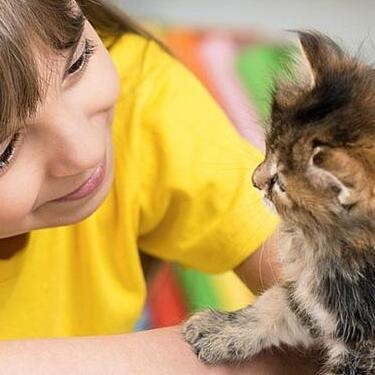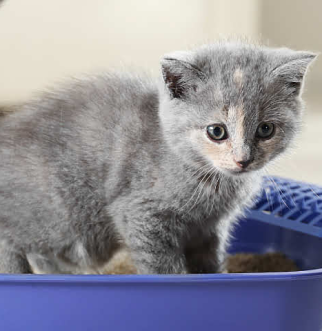
-
Find the right food for your pet
Take this quiz to see which food may be the best for your furry friend.
Find the right food for your pet
Take this quiz to see which food may be the best for your furry friend.
Featured products
 Adult 7+ Perfect Digestion Chicken, Whole Oats & Brown Rice Recipe Dog Food
Adult 7+ Perfect Digestion Chicken, Whole Oats & Brown Rice Recipe Dog FoodScience Diet's breakthrough nutrition supports ultimate digestive well-being & healthy microbiome for dogs age 7+
Shop Now Small & Mini Savory Stew with Chicken & Vegetables Dog Food
Small & Mini Savory Stew with Chicken & Vegetables Dog FoodA delicious complement to the nutrition of Science Diet Small & Mini 7+ dog food
Shop Now Adult Healthy Cuisine Roasted Chicken, Carrots & Spinach Stew Dog Food
Adult Healthy Cuisine Roasted Chicken, Carrots & Spinach Stew Dog FoodDelicious roasted chicken paired with tender vegetables in a succulent stew
Shop NowFeatured products
 Adult 7+ Tender Tuna Dinner Cat Food
Adult 7+ Tender Tuna Dinner Cat FoodWith delicious chunks in a decadent gravy
Shop Now Adult 7+ Senior Vitality Chicken & Vegetable Stew Cat Food
Adult 7+ Senior Vitality Chicken & Vegetable Stew Cat FoodImproves Everyday Ability to Get Up & Go
Shop Now Adult Savory Entrée Can Variety Pack Cat Food
Adult Savory Entrée Can Variety Pack Cat FoodPrecisely balanced nutrition with the delicious taste of savory minced chicken to help fuel the energy needs of cats during the prime of their life
Shop Now -
Dog
- Dog Tips & Articles
-
Health Category
- Weight
- Food & Environmental Sensitivities
- Urinary
- Digestive
- Joint
- Kidney
-
Life Stage
- Puppy Nutrition
- Adult Nutrition
- Senior Nutrition
Cat
- Cat Tips & Articles
-
Health Category
- Weight
- Skin & Food Sensitivities
- Urinary
- Digestive
- Kidney
-
Life Stage
- Kitten Nutrition
- Adult Nutrition
Featured articles
 Does My Pet Hate Me?
Does My Pet Hate Me?Learn tips for bonding with your pet if you've ever thought, 'My dog doesn't like me, or 'Why do I have a standoffish cat?'
Read More Why Are Dogs and Cats So Cute?
Why Are Dogs and Cats So Cute?If waggy puppy dog tails and furry kitten yawns make you swoon, you're not alone. Why are cats so cute? And, dogs too! Let's find out!
Read More Do Dogs and Cats have Belly Buttons?
Do Dogs and Cats have Belly Buttons?Learn whether cats & dogs have belly buttons like humans, what the function is, and if there are any health concerns associated with it.
Read More -


You brush your cat's fur regularly, but when was the last time you brushed their teeth? Though you might not think about it much, cat oral care is important. Read on for tips on how to identify and maintain healthy cat teeth.
A Healthy Cat Mouth
Your dog will bark, lick your face, and open their mouth in a canine smile to show you their teeth, but healthy cat teeth are a little harder to see. When your cat yawns or lets you touch their face, look at their gums. Healthy gums are bright pink, according to Vetwest Animal Hospitals. If your cat's gums are white, bright red, or even tinged with yellow, they may have an infection or a serious condition such as liver disease. Keep an eye out for subtle changes in behavior and appearance, and take them to the veterinarian if something looks different.
Strong, sharp teeth are equally important for pet parents to maintain. Your cat has thirty adult teeth, and they should be white, without any signs of yellow or brown plaque or tartar (the hard, scaly, or sticky deposits that cause tooth decay and oral disease). A normal cat tongue should be pink. Cat Health writes that if your pet's tongue is pale white, they may be suffering from anemia, and you should take them to the vet immediately.
A cat with bad breath can also be a sign that your cat is dealing with some oral issues. While a fishy or meaty smell after they have eaten can be normal, constant and consistent bad breath is not normal. So, if your cat snuggling up against your face causes you to plug your nose, it is worth taking your cat in for a dental check-up at your vet to make sure there aren't any underlying issues.
Why You Should Brush Your Cat's Teeth
Regular brushing is the most effective at-home cat oral care treatment to keep your pet's mouth as healthy as can be. You may not be looking forward to chasing a sprinting furball around the house so you can stick your hand in their mouth, but with gradual training, even the wiliest cat can learn to have their teeth brushed.
Not sure how to get started? The American Veterinary Dental College advises pet parents new to cat oral care to start slowly. First, let your cat get used to having their mouth touched. Take a moment every day to gently rub their face, and lift up their lips to look in the mouth. Once they are comfortable with that, you can put a small amount of toothpaste on your finger and let themlick it off. Feline toothpaste comes in flavors like chicken and seafood, so they may even view it as a treat. Next, try gently rubbing your finger over their teeth. Once they get used to the feeling, try an actual feline toothbrush. Don't forget: You should never brush your cat's teeth with a human toothbrush or human toothpaste, which contains ingredients that can irritate their stomach and make them very sick.
The earlier you can introduce your kitten to the concept of brushing their teeth, the better, so start as soon as possible. It can be more difficult to get older kitty companions to embrace oral care. Some cats also just aren't up for regular brushing. If that's the case with your pet, you can try an oral rinse, drinking water additives, dental chews, or specially formulated products like Hill's Science Diet Oral Care cat foods, which will freshen your cat's breath and help to reduce plaque and tartar.
Professional Cleaning
Just like you go to the dentist for oral care you can't get at home, your cat should go to the vet for a comprehensive cleaning. Usually performed under anesthesia, a professional cleaning will remove plaque and tartar in areas that you can't reach with a toothbrush, such as under the gum line. Most vets suggest scheduling comprehensive dental exams every one to two years, especially as your pet gets older. Depending on the dental issues your cat is facing, they may require more frequent cleanings.
Broken teeth are a common problem for cats, so your vet may also take dental X-rays to identify any issues beneath the gum line. Other common problems that could be identified through X-rays are periodontal disease, abscesses or infections. Although it may be worrying to place your pet under anesthesia for this procedure, it is necessary for the vet to properly check her teeth and assess her overall oral health.


Tasty Tips
Signs of Dental Problems in Your Cat
It's worth noting that many common dental issues cause intense pain. But, as Vetwest Animal Hospitals points out, cats' wild ancestors who show signs of being sick are vulnerable to predators — meaning to this day, your pet may try to hide it if she has a toothache or other ailment.
According to Harmony Animal Hospital, bad breath — also known as halitosis — is the most common clue that your kitty may be in need of some oral care. Other signs include:
- Eating difficulties
- Problem gums
- Stained teeth
- Loose and broken teeth
- Tumors on gums
- Pawing and drooling
You know your cat best and will be the first one to spot any of these unusual signs. Contact your vet if your pet's eating habits change or they seem to be in pain.
Cat Oral Health Problems
Cats are prone to a variety of dental and oral issues, especially as they age. Here are some common conditions to watch out for:
- Broken teeth: Cats of all ages can break a tooth for a variety of environmental and health reasons. Your vet will decide whether to remove a fractured tooth based on where in the mouth the tooth is located. Broken teeth will be addressed in radiographs as part of their anesthetized dental visit to make sure the root of the tooth isn't affected or that there isn't a larger oral disease lurking below the gumline.
- Gingivitis: This inflammation of the gums is caused by the accumulation of plaque. Untreated gingivitis can develop into periodontal disease, which attacks the gums and the bone holding your pet's teeth in place.
- Tooth resorption: The cause of tooth resorption is a mystery, despite the fact that it affects close to three quarters of all cats who are five and older, according to the Cornell Feline Health Center. In this condition, the tooth's inner material called dentin erodes and causes broken teeth and painful chewing.
- Periodontitis: In this gum disease that affects senior cats, the ligaments and tissue surrounding teeth recedes and exposes the root. Affected teeth often need to be extracted.
- Stomatitis: Similar to the inflammation of gingivitis, bacteria can spread throughout the mouth and infect the tissues in your pet's cheeks and throat. Veterinary Practice News warns that this condition can be quite painful for your feline companion. Stomatitis is often more common in cats that have FIV (feline immunodeficiency virus), but you should contact your vet immediately if you see that your cat's mouth is red and swollen or they whimper when trying to eat.
If you notice any of these issues or suspect your cat has a dental problem, bring them in for a checkup as soon as possible. Dental health issues are painful and serious for your cat—just as they are for you. By cleaning their teeth at home and taking them in for regular cat oral care vet visits, you can help them have a healthy mouth for the rest of their life.


One of our staff authors prepared this article for you
Related products
Related articles

What is the best food for an overweight cat? Learn all about weight control food for cats, including what's in it and how it works.

Discover how to train your cat, starting with very basic first steps that both reward good behavior and discourage the bad.

How do you get a cat to lose weight? Learn all about cat foods for weight loss, including how to choose weight control cat food and exercise tips.

Cats are naturally very clean and chances are your kitten will already have learned how to use the litter box from her mother before she comes to live with you.

Put your cat on a diet without them knowing
Our low calorie formula helps you control your cat's weight. It's packed with high-quality protein for building lean muscles, and made with purposeful ingredients for a flavorful, nutritious meal. Clinically proven antioxidants, Vitamin C+E, help promote a healthy immune system.
Put your cat on a diet without them knowing
Our low calorie formula helps you control your cat's weight. It's packed with high-quality protein for building lean muscles, and made with purposeful ingredients for a flavorful, nutritious meal. Clinically proven antioxidants, Vitamin C+E, help promote a healthy immune system.

